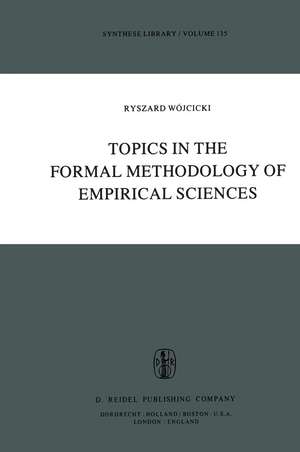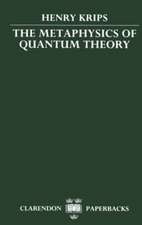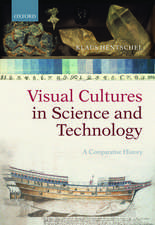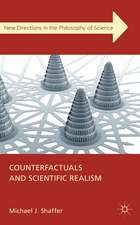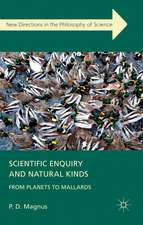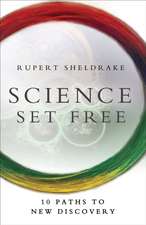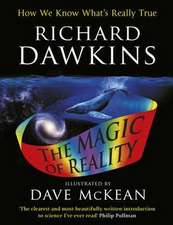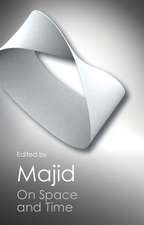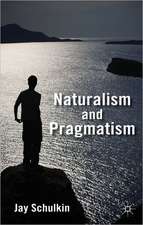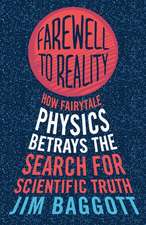Topics in the Formal Methodology of Empirical Sciences: Synthese Library, cartea 135
Autor Ryszard Wójcickien Limba Engleză Paperback – 11 noi 2011
Din seria Synthese Library
- 15%
 Preț: 638.43 lei
Preț: 638.43 lei - 18%
 Preț: 989.98 lei
Preț: 989.98 lei - 15%
 Preț: 596.69 lei
Preț: 596.69 lei - 18%
 Preț: 903.93 lei
Preț: 903.93 lei - 15%
 Preț: 586.88 lei
Preț: 586.88 lei - 15%
 Preț: 696.50 lei
Preț: 696.50 lei - 18%
 Preț: 892.90 lei
Preț: 892.90 lei - 15%
 Preț: 643.34 lei
Preț: 643.34 lei -
 Preț: 282.33 lei
Preț: 282.33 lei - 5%
 Preț: 372.19 lei
Preț: 372.19 lei -
 Preț: 443.10 lei
Preț: 443.10 lei - 15%
 Preț: 637.59 lei
Preț: 637.59 lei - 18%
 Preț: 958.88 lei
Preț: 958.88 lei - 15%
 Preț: 642.36 lei
Preț: 642.36 lei - 18%
 Preț: 1230.66 lei
Preț: 1230.66 lei - 15%
 Preț: 642.83 lei
Preț: 642.83 lei - 18%
 Preț: 1000.39 lei
Preț: 1000.39 lei -
 Preț: 389.70 lei
Preț: 389.70 lei - 15%
 Preț: 637.28 lei
Preț: 637.28 lei - 18%
 Preț: 952.26 lei
Preț: 952.26 lei - 18%
 Preț: 1231.32 lei
Preț: 1231.32 lei - 15%
 Preț: 645.96 lei
Preț: 645.96 lei -
 Preț: 395.85 lei
Preț: 395.85 lei -
 Preț: 400.47 lei
Preț: 400.47 lei - 18%
 Preț: 1225.48 lei
Preț: 1225.48 lei - 15%
 Preț: 638.89 lei
Preț: 638.89 lei - 18%
 Preț: 1232.09 lei
Preț: 1232.09 lei -
 Preț: 380.45 lei
Preț: 380.45 lei -
 Preț: 394.87 lei
Preț: 394.87 lei - 15%
 Preț: 640.37 lei
Preț: 640.37 lei - 15%
 Preț: 639.08 lei
Preț: 639.08 lei -
 Preț: 381.98 lei
Preț: 381.98 lei - 15%
 Preț: 643.00 lei
Preț: 643.00 lei - 15%
 Preț: 672.29 lei
Preț: 672.29 lei
Preț: 387.20 lei
Nou
Puncte Express: 581
Preț estimativ în valută:
74.09€ • 77.55$ • 61.67£
74.09€ • 77.55$ • 61.67£
Carte tipărită la comandă
Livrare economică 31 martie-14 aprilie
Preluare comenzi: 021 569.72.76
Specificații
ISBN-13: 9789400989467
ISBN-10: 9400989466
Pagini: 292
Ilustrații: 290 p.
Dimensiuni: 152 x 229 x 15 mm
Greutate: 0.4 kg
Ediția:1979
Editura: SPRINGER NETHERLANDS
Colecția Springer
Seria Synthese Library
Locul publicării:Dordrecht, Netherlands
ISBN-10: 9400989466
Pagini: 292
Ilustrații: 290 p.
Dimensiuni: 152 x 229 x 15 mm
Greutate: 0.4 kg
Ediția:1979
Editura: SPRINGER NETHERLANDS
Colecția Springer
Seria Synthese Library
Locul publicării:Dordrecht, Netherlands
Public țintă
ResearchCuprins
Preface to the English edition.- Preface to the Polish edition.- I Introduction.- 1.1. Mathematical notation.- 1.2. Numerical systems.- 1.3. Elementary systems.- 1.4. States and histories.- 1.5. Complex systems.- 1.6. Empirical phenomena.- 1.7. Phase-space of a phenomenon and some related technical notions.- 1.8. Semi-interpreted languages.- 1.9. Fundamental semantic concepts.- 1.10. Formalized languages and the deductive concept of a theory.- 1.11. A criterion of consistency.- 1.12. The concept of a theory.- II Regularities.- 2.0. Two conventions.- 2.1. Two types of regularities.- 2.2. State-determined phenomena.- 2.3. Mathematical models for state transformations.- 2.4. History-determined phenomena.- 2.5. Definability.- 2.6. Ontological versus semantic definability.- 2.7. Surrounding conditions.- 2.8. Self-determined phenomena.- 2.9. Invariancy.- 2.10. Notes.- III Empirical Theories.- 3.1. Axiomatic versus set theoretical way of defining theories.- 3.2. Theories as deductive systems.- 3.3. The concept of truth.- 3.4. Empirical theories.- 3.5. Two examples of empirical theories.- 3.6. Models and theories of empirical phenomena.- IV Measurement.- 4.1. Semantic conception of measurement.- 4.2. Complete measurement structures.- 4.3. Approximate measurement.- 4.4. Theoretical versus operational conception of measurement.- 4.5. Notes.- V Operational Structures.- 5.0. Introductory assumptions.- 5.1. Verification procedures.- 5.2. Operational structures.- 5.3. A revised notion of regularity.- 5.4. The concept of truth as related to operational structures.- 5.5. Truth by convention.- 5.6. Confirmation procedures.- 5.7. Probabilistic models.- 5.8. Dispersive operational structures.- 5.9. Evolution of empirical theories.- VI Appendix.- 6.1. Complementary tests.- 6.2. Physical systems.- Index of Symbols.- Index of Names.
